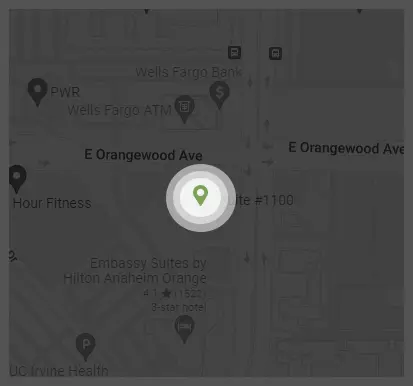What is a Domestic Violence Restraining Order, and Can It Help Me?
If you’re experiencing domestic violence, a restraining order against your spouse or partner can be an effective and almost immediate legal tool. A domestic violence restraining order (DVRO) can stop your spouse (or any other specified person) from being near you and your family and doing specific actions that may do you harm. These court orders are usually put into place for a particular period, but some are permanent.
Restraint orders can be ordered for numerous reasons. Still, if you’re going through a divorce, the courts in California can issue an automatic and temporary restraining order (or ATRO) while your divorce is in progress.
Suppose you are the victim of domestic violence. In that case, a restraining order can usually be expedited. Still, you should always obtain the advice and guidance of an Orange County restraining order lawyer to ensure it’s drafted correctly, legally, and expeditiously.
Remember that a restraining order, although a powerful legal tool when needed, should never be taken lightly; when issued, it will immediately and directly impact the person receiving it and possibly your children and family.
However, domestic violence is taken seriously in California. If it is necessary to issue a DVRO, then the recipient faces severe consequences if they break the covenants of the court order, which may include jail time, high fines, and more.
What Precisely Can a Domestic Violence Restraining Order Do?
Some restraining orders include rules for personal conduct, such as “stay away” orders and “move out” orders. When a court-ordered restraining order is issued, it will provide detailed orders for the restrained party to refrain from doing so. Therefore, if any actions described in the order are violated, the restrained person (spouse, partner, etc.) can immediately be arrested and possibly face significant jail time and more.
Domestic violence restraining orders will commonly include prohibitions against attacking, stalking, or communicating in any manner with you as the “protected” person. This consists of any type of contact, including texting, social media, etc.
“Stay away” orders sometimes go a bit further and include a physical distance that must be maintained between the protected party and the possible aggressor. They could also include restrictions on the restrained person’s home or place of business.
So, these are essential legal tools designed to keep you and your family safe. That said, your qualified, empathetic, and experienced restraining order lawyer will know exactly what type of order to use and how to legally draft it so that it has the maximum impact on the restrained person and provides maximum safety for you and your family.
What Must I Do to Put a Domestic Violence Restraining Order in Place?
The California Courts take an extremely harsh stance on any domestic violence. Therefore, if you’re the victim of domestic violence, the court knows you must have help rapidly.
First, you should know that these orders are detailed in nature. If you want the restraining order process to work effectively, you must have the help and professional guidance of an Orange County restraining order lawyer.
After thoroughly discussing your unique situation, your lawyer will complete all the necessary documents. Most of the initial paperwork requires you to describe your unique situation or circumstances and why the restrained person poses a danger to you and, possibly, your family.
A judge will review these documents and decide whether a TRO (or Temporary Restraining Order) should be issued. It’s vital to note that the “restrained person” doesn’t have to be present for these legal actions.
The initial TRO may be in effect for a few weeks or more. After that, there will be a court hearing to decide whether you (as the applicant) should get a Permanent Restraining Order.
At the hearing, all relevant evidence will be presented to a judge, who will decide whether to issue a more permanent restraining order based on this.
When you have experienced domestic violence, time is not on your side. This is only one very sound reason to enlist the professional and compassionate help of a qualified, diligent Orange County restraining order lawyer. By doing so, you can be assured the order will be drafted, filed, processed, and in effect in the shortest amount of time possible.
What Proof Do I Need To File a Domestic Violence Restraining Order?
In most all criminal cases, including criminal domestic violence charges, the standard of proof (“proof beyond a reasonable doubt”) applies. However, it does not apply pertaining to domestic violence restraining orders. When DVROs are requested, the “preponderance of the evidence” standard of proof applies.
Thus, when the judge goes over your case, it simply must appear likelier than not that you (as the petitioner) should be protected from the restrained person for your order to be granted in a domestic violence case.
However, this is why, in most cases, the judge initially grants a temporary restraining order (TRO). The “clear and convincing evidence” standard of proof, being the middle ground of certainty between the usual “beyond a reasonable doubt” standard and the “preponderance of the evidence” standard, always applies in civil harassment restraining order applications.
You and your skilled and experienced restraining order lawyer know that the court has a mandate to see that in a domestic violence case, you and your family must be protected quickly. At the hearing later, more proof may be needed, and possibly domestic violence charges filed. But, when you need it, the initial restraining order has done its job to protect you and those you love.
I Need More Information on a Domestic Violence Restraining Order; How Should I Proceed?
Suppose you are the victim of domestic violence. In that case, a restraining order can be a rapid, effective legal tool that will provide you and your family significant protection if drafted professionally and correctly. It also must pertain in detail to your unique situation and all its various contingencies.
However, these situations are always emotional and extremely difficult to deal with. Under California law, this tool, when used correctly, can provide almost immediate help at a very dire time in your life.
The Law Office of Patrick O’Kennedy has the in-depth legal knowledge needed to use a DVRO to protect your safety and rights.
Call them today at 714-701-6356 and have peace of mind that you’re being represented by a well-versed, empathetic, and thorough restraining order lawyer who will work immediately to ensure your and your family’s safety.








